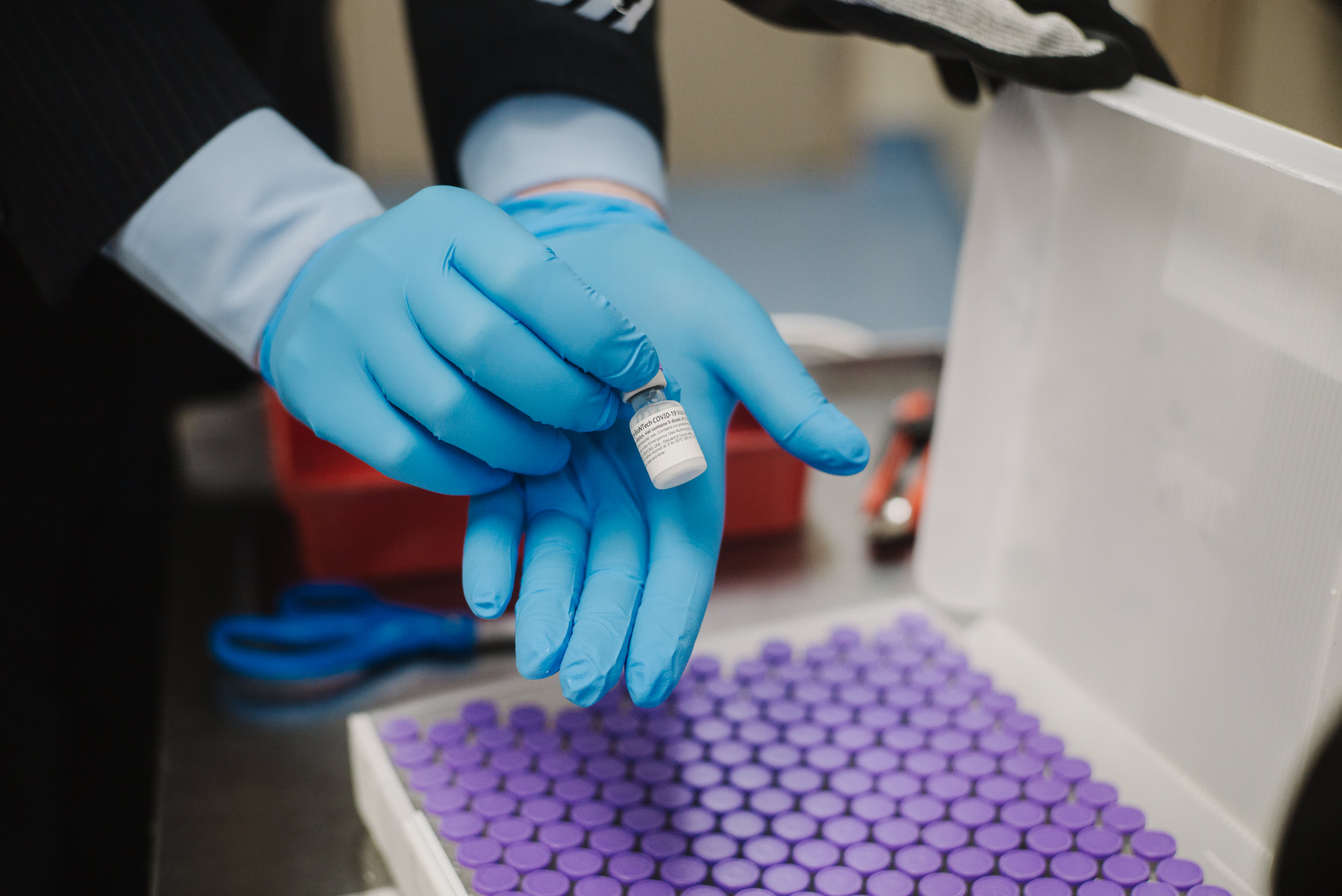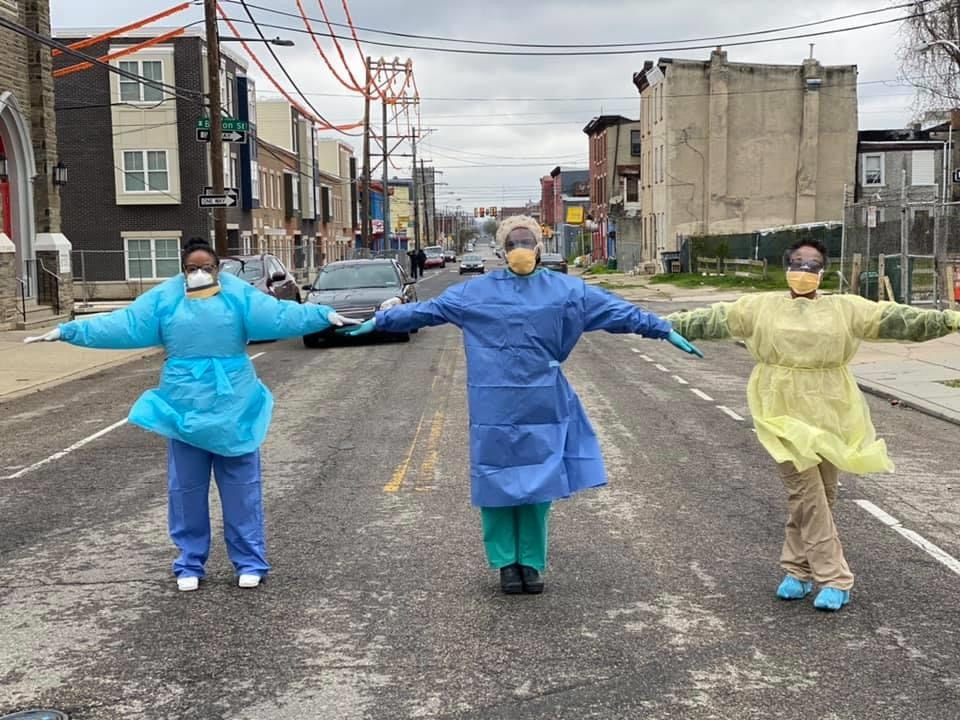NBC10 is one of dozens of news organizations producing BROKE in Philly, a collaborative reporting project on solutions to poverty and the city’s push toward economic justice. Follow us at @BrokeInPhilly.
A 24-hour coronavirus vaccination event aimed at get people in Philadelphia's hardest-hit neighborhoods vaccinated against COVID-19 drew a crowd willing to wait around the block in the snow.
The Black Doctors COVID-19 Consortium is holding a "Vaxathon" from noon Friday until noon Saturday at Temple University's Liacouras Center on North Broad Street in North Philadelphia. The walk-up vaccine event is first-come, first served.
Get Philly local news, weather forecasts, sports and entertainment stories to your inbox. Sign up for NBC Philadelphia newsletters.
People were already lined up in the cold sleet and snow Friday morning before the event began. They said they wanted to make sure they got a spot for a vaccine.
"If I can tailgate for the Eagles, and sit out there all day in the cold, why can't you come out here and tailgate for yourself?" said the Rev. Gregory Lingham, sitting bundled up on a lawn chair as sleet came down.
Rev. Lingham said he wanted to set an example by coming out to get his shot.
"If I come out as a preacher, then maybe my constituents will see that I'm doing it, and maybe they'll come out and do it."
Not just anyone can walk up to get a dose of the coronavirus vaccine.
The event is aimed at vaccinating people in Philadelphia's 1B vaccination group. The BDCC is looking to serve "frontline workers at high risk for exposure who perform essential duties, persons working and residing in congregate settings, persons 75 years and older, and persons with high-risk medical conditions," according to a flyer for the event.
You also must be able to prove you live (ID, utility bill) in one of the "zip codes with the highest incidence of COVID-19 disease and death during the pandemic," organizers said. These are the 20 zip codes you must live in to receive your vaccine: 19104, 19119, 19120, 19121, 19123, 19126, 19131, 19132, 19133, 19138, 19139, 19140, 19141, 19142, 19143, 19144, 19146, 19150, 19151, 19153.
Philly's federal health centers getting more doses
The 24-hour vaxathon comes as Philly federally qualified health centers (FQHCs) are poised to receive more doses to help vulnerable communities - and the White House says an upcoming FEMA-run clinic at the Pennsylvania Convention Center will also help achieve this goal.
Initial data on who was receiving vaccine shots showed 8% of the patients as African American, in part because of racial disparities in the health care field, which got shots first. The percentage has since risen to 20%.
In a news conference Friday, Dr. Scott McNeal of Delaware Valley Community Health said two his organization's FQHCs in Philly are administering vaccines from the city supply. The organization hopes to start administering shots at a third site in the city once it starts receiving doses directly from the federal government.
The Health Resources and Services Administration selected Del Val, PHMC and Family Practice and Counseling Network as 3 organizations in the city to receive vaccine doses directly from the federal government, among 250 nationwide.
The HRSA said it selected sites that cater to patients experience homelessness, who live in public housing, are seasonal workers or have limited English fluency.
McNeal said Del Val is doing 500 shots a week and could ramp up to 1,000 per week if its third site opens. Health Commissioner Dr. Thomas Farley said federally qualified health centers across the city collectively administered 5,000 shots last week.
The Black Doctors COVID-19 Consortium is getting 2,500 doses a week from the city.
McNeal said the health centers can reach their own patients in vulnerable communities. In the news conference, Farley cited a study indicating that patients are most likely to trust their own doctor or nurse for information about the vaccine, compared to celebrities or public health officials.
“We are not trying to be a mass vaccination site. We’re trying to complement those mass vaccination sites," McNeal said.
McNeal said the BDCC's work is commendable but will be limited to reaching those who are interested.
"There are people who are hesitant who are not going to respond to them. And there’s no way a mass vaccination site can reach those people. … If they don’t respond, then how do we know that they’re out there? ... We know who those patients are and we're doing the outreach to them," McNeal said.
He said doctors and staff are calling eligible patients they know and convincing them to get the shots.
"It’s much more labor intensive because we have to find them and try to convince them to come in. But the yield of getting to those really at-risk patients is worth it,” McNeal said.



